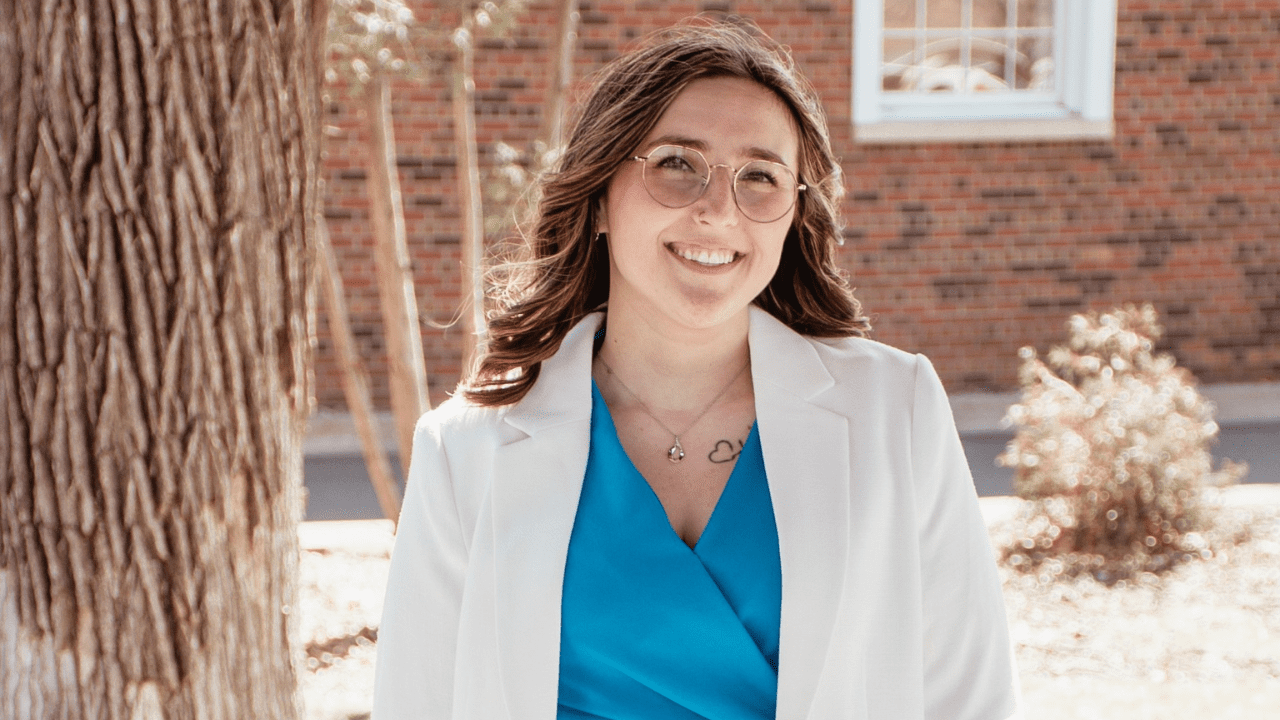Adding Health Coaching to Your Chiropractic Degree
-
-
Last updated: March 24, 2025
Holli Kells, DC, MHS graduated from NWHSU with both her chiropractic degree and a master’s in integrative care. Why? Practicing alongside other professions is important to her as a chiropractor. We checked in with her about her new practice, her future goals, and why she’s passionate about adding health coaching to your chiropractic degree.
Choosing to pursue a dual degree in chiropractic school
Before coming to NWHSU, Dr. Kells earned her bachelor’s in health sciences and her husband is currently in medical school. For her, there was never a question that her chiropractic practice would have an integrative approach. “I didn’t want to just become a chiropractor with my own practice. I wanted to find a way to integrate with other professions,” she shared. “Depending what type of provider my husband becomes, I’ve been poking at him to be like ‘hey, in the future let’s work together.”
Completing her master’s while in the chiropractic program wasn’t easy, but it was doable. “I really spaced it out. I took one, maybe two classes a semester,” she recalled. The program is mostly asynchronous, fully online, and made to be completed at your own pace. In that way, it was perfect for balancing with her busy chiropractic school schedule.
Health Coaching as a Chiropractic Student
Dr. Kells chose the health coaching specialization to complement her chiropractic degree. “I think it truly helped bridge the gap between ‘I’m a terrified new doc’ and ‘I’m a comfortable and confident provider because I know how to talk to people,” she explained.
Most importantly, she’s learned how to center her patients’ goals, and truly listen. In some ways, she had to do some unlearning. “I think it’s hard for people that have the provider mindset to flip into the health coaching mindset,” she reflected.
“I struggled a lot in the beginning because I just wanted to ask questions to get what I needed and check it off my list. It was truly learning a whole new way to talk to people: asking questions in ways that aren’t leading, offering solutions without telling them ‘here’s what I would do.”
Through the program, she learned not just to listen better, but how to get patients involved in their own care, and how to individualize her approach and treatment plans to fit the person in front of her.
I’ve gotten very comfortable with listening more and talking less.”
After completing the program, she sat for a national board exam to become a national board-certified health and wellbeing coach (NBC-HWC). However, she shared that, compared to the chiropractic board exams, it was very doable. “I felt confident to sit for the board exam with about a week of studying,” she shared. “The classes you take and the practice you do, everything will help you prepare so well for these exams.”
Health Coaching Benefiting Patients & Increasing Retention
After graduating, Dr. Kells moved to Grand Forks, ND and opened her practice: Firm Foundation Health and Healing.
She’s found that patient outcomes are better when they’re not only getting the right adjustments, but also when they’re involved in their treatment plan, and feel heard and understood.
The more coaching I’ve done, the more I’ve noticed that I don’t have to have the answers all the time. I truly just get to listen to someone.”
She’s found that through this listening, she can slow down patient care, even without having extremely long appointments. “My appointments aren’t the longest. But they’re still long enough to truly sit and listen versus treating and getting them out the door.”
And it’s not just good for patients, it’s also been good for her practice. Dr. Kells now offers chiropractic appointments with health coaching built in, and online health coaching sessions. Though she’s early in her practice, every patient she’s seen has returned for treatment, a testament to the effect health coaching skills can have on retention.
She feels more chiropractors should pursue education in health coaching and the soft skills related to patient care. “If we can do continuing education on how to adjust, I also feel like we should be doing continuing education on how to talk to people and how to make people feel heard.” she explained. “It’s a way to level up as a provider but also be able to care for more people in the community.”
Future Dreams: An Integrative Health Space
As she grows her solo practice, Dr. Kells is also dreaming of a future where she’s collaborating with other providers. “I would love to have an integrative care facility. I have a lot of friends and connections in a whole wide range of medical professions. I’d love if we could all be under the same roof and really work together versus saying ‘I’m going to refer you out here,’” she shared.
“If we had a general provider, acupuncture, chiropractic, naturopathic medicine, all on the same page I think we’d have better patient care and less wait time.”
Interested in Adding Health Coaching to Your Chiropractic Degree?
Learn more about the graduate certificate and masters of health science in integrative care and functional and integrative nutrition. Then reach out to our admissions team for more information.
